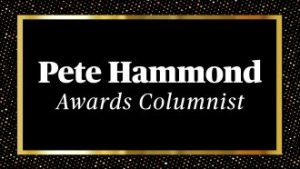New Yorker Films’ The Barber of Little Rock, an Oscar nominee for Best Documentary Short, explores America’s widening racial wealth gap through the story of Arlo Washington, a local barber whose visionary approach to a just economy can be found in the mission of People Trust, the nonprofit community bank he founded.
His story is inspirational and eye-opening, and we learn much more about it as the film played our Deadline Virtual Screening Series, which was followed by a Q&A with producer-directors John Hoffman and Christine Turner as well as the film’s subject, the remarkable Washington, who began by telling me how exciting it is to have this film, and now an Oscar-nominated one at that.
“It changes it quite a bit because now we have more, you know, when I go in a grocery store, or you know, I’m at the local mall or something, they go, ‘Hey, you got an Oscar.’ So it’s everybody’s noticing, and people are paying more attention to the work that we’re doing,” he said. “We’ve gotten calls — I had Junior’s Cheesecake send me 12, two dozen cheesecakes from Junior’s, and I mean, from Brooklyn, New York. So, they FedEx’d it. So, it’s been a lot, and it’s making me focus even more on the mission because I know that there’s a lot of pulling in different directions. But you know, that just shows how important the work is. So, happy that it’s had such an impact.”
Hoffman, whose films have included Fauci, explains why this was such a compelling story to bring to the screen.
“Christine and I wanted to make a film about this topic of the racial wealth gap, and as we dove into the research, we kept hearing about this book called The Color of Money by a woman named Mehrsa Baradaran, which looks at the history of Black banking in this country since Reconstruction and how, for all intents and purposes, it’s just been one series of failures after another, government policies and programs that have just not enabled the Black community to accumulate wealth, create generational wealth,” he said. “But she points out one program that was created by President Clinton, and that’s the Community Development Financial Institutions Fund, and so, we started digging into that and came to understand them to be these sort of high-touch financial institutions that are getting capital into communities that have been historically under-financed and basically cut out of the financial system, and Clinton understood that these communities can’t grow unless they have access to capital.”
Eventually that led the filmmakers to Washington, the perfect person to put a human face on it all according to Turner. “We figured if we could really embed in a place like this that we would be able to witness, you know, those who are experiencing the wealth gap but also those who are committed to solving it, and those on the ground, people like Arlo,” she said. “And when we met Arlo, there was no question.
“He has a very untraditional background in the sense that, you know, he’s a barber and an entrepreneur by trade, but he sort of organically fell into this line of the work because of the needs of the community and because he’s somebody who, in the community, people would come to him in their times of need,” Turner says. “So we were very much attracted to him as our protagonist, in his commitment to the work that he’s doing but also because he’s moving between these various different worlds. So, we knew that if we followed him, we would be going into the barber college and meeting the people who were training there, and learning a little bit about their lives, and their goals, and their hopes, and their dreams, but we also knew that we would be in the shipping container, and in the brick-and-mortar loan fund that he runs, and meeting those people, who were looking for loans and looking to improve their lot in life.
“We were also attracted to Little Rock as a place to set our film, and you know, it turns out that Arlo conducts so much business in his car that we would just ride with him from place to place. He also happens to be this wonderful local historian, and so we learned a lot about Little Rock, itself, through him.”
Check out the Q&A in the video above.

